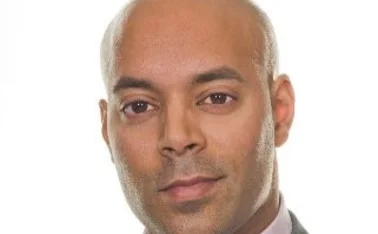
Digital Insurance Collective Blog: Ping Pong, Brexit and learnings from Mondo/Starling Banks

At the end of May, Post held the second meeting of the Digital Insurance Collective at the Bounce venue in Farringdon London.
This gave me the opportunity to reflect on my first exposure to "digital" in the shape of the Pong arcade game that was available as a cartridge on old school gaming consoles like the Atari 2600, setting the scene for another illuminating and interesting session.
I have already written about Barclays' Ian Morgan's view that insurers need to find new "kings and queens" of innovation; and Celent's Craig Beattie's assertion the market is at a "basic" digital level, but here are some other take homes from the meeting:
Going digital is different to digitalising
After the brunch break Jason Bates the co-founder of 11:FS - and the brains behind digital start-up banks Starling and Mondo - chaired a session called "define digital".
Reflecting on his past experiences, Bates said that when attending dinner parties many were dismissive when he told them what he was doing, commenting: "You do know that has been done; my bank already has an app."
However, Bates noted that the benefit Mondo and Starling had over the likes of Barclays, was that it could begin by not "defining digital" [he said no one has ever asked him to do that] but ask what advantages does starting from scratch give a business, as opposed to one that has massive legacy, including IT systems that date back to the seventies.
He added that digital is not a channel in itself - in that it should not be viewed as just a different way of selling widgets for less cost, which he described as "digitalising" - but an approach to putting customers front and centre of everything you do, unencumbered by the past.
The "institution of insurance" is resistant to change
The above example met with some approval from the Collective, with CatDogFish CEO Gabrielle Hase agreeing that digital meant more than putting some "varnish" on old and tired processes.
She also voiced frustrations with regulation, noting that in terms of facilitating start-ups, there was an "Institutional approach that has be broken, and needed to be put back together again".
Other members of the collective noted that because traditional incumbent insurers controlled the capacity, it was difficult to break their stranglehold outside making a success of peer-to-peer, as one noted: "There is a lot of innovation, but it is about the front end user experience, not products".
Bates asked the members to stand up if they felt they could drive digital change from within their organisation, rather than setting up a satellite arm to achieve this aim. Interestingly, around a third stood up.
However, it could be that people are simply looking in the wrong place
Taking a contrary view, Paolo Cuomo of Charles Taylor Consulting claimed that the market was "awash with capital", and that surely it needed someone smart on the capital side to hook up with someone smart on the product side, to achieve digital nirvana.
He added that one of the problems presently was that many were not knocking on the same doors - such as Axa, Aviva and Swiss Re - and thus were looking in wrong direction.
Worry and Peace founder James York pointed out that in contrast to the banking sector there was not a "challenger insurer", whilst Bought by Many's Stephen Mandel noted that given the UK regulator had not had to deal with a new "full stack" insurer since Esure and Admiral; it would struggle if one tried to get off the ground.
Do we need to rebrand insurance?
Elsewhere some thought was given to what insurers were selling, with Andy Thornley of the British Insurance Brokers' Association musing whether a rebrand to "risk mitigation" might help, before concluding he could not imagine anyone getting excited about buying that either.
Reflecting on his time at Mondo, Bates recollected that when it asked customers what they thought of their bank, many described it as "fine", but you had to "delve deeper" and understand their journeys to get a clearer picture of what they really thought.
Are there are parallels between the Brexit vote and the digital insurance debate?
Sorry if you are bored by the Brexit discussion, or lack of proper discussion, but after the latest Digital Insurance Collective meeting someone noted that they saw parallels between voting in or out with the dilemma many Collective members felt trying to get things done within large bureaucratic organisations.
They reasoned that by removing the shackles of Brussels, Britain would be more entrepreneurial and innovative, and that parallels could be drawn with working within a large insurer or smaller start-up.
Don't throw away your contact book
And finally, Bates reminded us all about the value of keeping that contact's book, noting that he first met the CEO of Starling Bank Anne Boden, 15 years previously as a fresh faced consultant just out of University, when she was CIO of Aon and he was doing some work helping the broker untangle its "massive legacy" after a number of acquisitions.
... and a song about Ping Pong
Enjoy!!!!
Only users who have a paid subscription or are part of a corporate subscription are able to print or copy content.
To access these options, along with all other subscription benefits, please contact info@postonline.co.uk or view our subscription options here: http://subscriptions.postonline.co.uk/subscribe
You are currently unable to print this content. Please contact info@postonline.co.uk to find out more.
You are currently unable to copy this content. Please contact info@postonline.co.uk to find out more.
Copyright Infopro Digital Limited. All rights reserved.
You may share this content using our article tools. Printing this content is for the sole use of the Authorised User (named subscriber), as outlined in our terms and conditions - https://www.infopro-insight.com/terms-conditions/insight-subscriptions/
If you would like to purchase additional rights please email info@postonline.co.uk
Copyright Infopro Digital Limited. All rights reserved.
You may share this content using our article tools. Copying this content is for the sole use of the Authorised User (named subscriber), as outlined in our terms and conditions - https://www.infopro-insight.com/terms-conditions/insight-subscriptions/
If you would like to purchase additional rights please email info@postonline.co.uk
Most read
- Singapore Airlines victim named as retired insurance manager Geoff Kitchen
- Aviva building out strategic broker proposition
- Diary of an Insurer: Claims Consortium Group’s Jeremy Hyams








